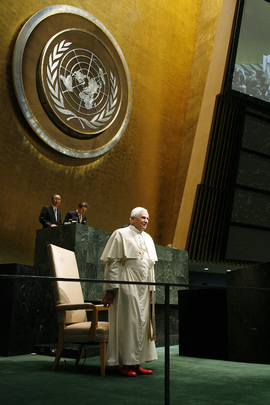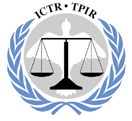By Tobias Thienel
 This morning, the Grand Chamber of the European Court of Human Rights decided the case if Saadi v. Italy, concerning the expulsion of a terrorist suspect to Tunisia. In argument before the Court, the Italian government and the UK government as intervener (Article 36(2) ECHR) had submitted to the Court that the protection from expulsion to a risk of torture or inhuman treatment in the receiving State (as stated, most prominently, in Soering v. United Kingdom, paras. 85-91) should not be absolute. Instead, so the argument particularly of the United Kingdom went, the risk of grave ill-treatment in the receiving State should be balanced against the danger the person concerned poses to national security. This submission meant that the UK (and Italy, which joined the British submissions in this respect) had to mount a full-blown attack on the Grand Chamber judgment in Chahal v. United Kingdom. There, the Court had held that the protection from expulsion under Article 3 was absolute, and that the behaviour of the person concerned was therefore nothing to the point, even if the person was a terrorist. The UK now argued that the Court should depart from Chahal (as clearly it could have done: Stafford v. United Kingdom, para. 68). Chahal, the UK said, had created serious difficulty for States in their fight against terrorism, in that it was no longer possible to protect society from foreign terrorists where they a) could not be deported (Chahal) and b) could not be tried due to a lack of evidence proving the commission of crimes beyond reasonable doubt. The UK further sought to deflect the force of the argument drawn from the absoluteness of Article 3: it submitted that in expulsion cases, the actual violation of the terms of Article 3 would happen in the receiving State, and not at the hands of the expelling State. The prohibition of expulsion in such a case was a positive obligation, added to the basic, negative and completely absolute prohibition of torture or inhuman treatment by the State itself. Positive obligations, the UK said, were not absolute. As might have been expected, the Court was having none of it. In a completely unanimous judgment, it reaffirmed that Article 3 ‘enshrine[d] one of the most fundamental values of democratic societies’ (its early case-law only spoke of ‘the democratic societies making up the Council of Europe’ – Soering, para. 88; of course, the extension is unremarkable), that it was without exception and could not be derogated from even in a public emergency (Article 15(2) ECHR). As in Chahal, the threat of terrorism could not call into question the absoluteness of Article 3. Continue reading →
This morning, the Grand Chamber of the European Court of Human Rights decided the case if Saadi v. Italy, concerning the expulsion of a terrorist suspect to Tunisia. In argument before the Court, the Italian government and the UK government as intervener (Article 36(2) ECHR) had submitted to the Court that the protection from expulsion to a risk of torture or inhuman treatment in the receiving State (as stated, most prominently, in Soering v. United Kingdom, paras. 85-91) should not be absolute. Instead, so the argument particularly of the United Kingdom went, the risk of grave ill-treatment in the receiving State should be balanced against the danger the person concerned poses to national security. This submission meant that the UK (and Italy, which joined the British submissions in this respect) had to mount a full-blown attack on the Grand Chamber judgment in Chahal v. United Kingdom. There, the Court had held that the protection from expulsion under Article 3 was absolute, and that the behaviour of the person concerned was therefore nothing to the point, even if the person was a terrorist. The UK now argued that the Court should depart from Chahal (as clearly it could have done: Stafford v. United Kingdom, para. 68). Chahal, the UK said, had created serious difficulty for States in their fight against terrorism, in that it was no longer possible to protect society from foreign terrorists where they a) could not be deported (Chahal) and b) could not be tried due to a lack of evidence proving the commission of crimes beyond reasonable doubt. The UK further sought to deflect the force of the argument drawn from the absoluteness of Article 3: it submitted that in expulsion cases, the actual violation of the terms of Article 3 would happen in the receiving State, and not at the hands of the expelling State. The prohibition of expulsion in such a case was a positive obligation, added to the basic, negative and completely absolute prohibition of torture or inhuman treatment by the State itself. Positive obligations, the UK said, were not absolute. As might have been expected, the Court was having none of it. In a completely unanimous judgment, it reaffirmed that Article 3 ‘enshrine[d] one of the most fundamental values of democratic societies’ (its early case-law only spoke of ‘the democratic societies making up the Council of Europe’ – Soering, para. 88; of course, the extension is unremarkable), that it was without exception and could not be derogated from even in a public emergency (Article 15(2) ECHR). As in Chahal, the threat of terrorism could not call into question the absoluteness of Article 3. Continue reading →
 Last Friday, ICTY Trial Chamber I unsealed an indictment for contempt of court against Astrit Haraqija, former Kosovo Minister for Culture, Youth and Sport, and Bajrush Morina, a political advisor at the Ministry. The Indictment had already been brought on 8 January 2008, but had been kept under seal until last week – probably to be unsealed after arrest of the two accused. Their initial appearance is scheduled for tomorrow. The indictment alleges that on Haraqija’s instructions, Morina met with "PW", a protected prosecution witness in the case against former Kosovo Prime Minister Ramush Haradinaj and others, and unsuccesfully tried to pressure him/her into not giving evidence. Continue reading
Last Friday, ICTY Trial Chamber I unsealed an indictment for contempt of court against Astrit Haraqija, former Kosovo Minister for Culture, Youth and Sport, and Bajrush Morina, a political advisor at the Ministry. The Indictment had already been brought on 8 January 2008, but had been kept under seal until last week – probably to be unsealed after arrest of the two accused. Their initial appearance is scheduled for tomorrow. The indictment alleges that on Haraqija’s instructions, Morina met with "PW", a protected prosecution witness in the case against former Kosovo Prime Minister Ramush Haradinaj and others, and unsuccesfully tried to pressure him/her into not giving evidence. Continue reading 
 The ICTY Appeals Chamber today partially granted the appeals of Enver Hadzihasanovic (pictured left) and Amir Kubura, high-ranking officers in the Bosnian army during the Bosnian war. The Trial Chamber had found them guilty of failing to prevent or punish crimes committed by their subordinates and sentenced them to five years and 2 years, six months, respectively. The Appeals Chamber reversed some of these finding and accordingly lowered the sentences to three years, six months and two years, respectively. (The Trial Chamber judgment can be found
The ICTY Appeals Chamber today partially granted the appeals of Enver Hadzihasanovic (pictured left) and Amir Kubura, high-ranking officers in the Bosnian army during the Bosnian war. The Trial Chamber had found them guilty of failing to prevent or punish crimes committed by their subordinates and sentenced them to five years and 2 years, six months, respectively. The Appeals Chamber reversed some of these finding and accordingly lowered the sentences to three years, six months and two years, respectively. (The Trial Chamber judgment can be found 
 Over at Opinio Juris, there is a discussion on an interesting article by Jenia Iontcheva Turner concerning "Defense Perspectives on Law and Politics in International Criminal Trials". Prof. Turner has interviewed several defence attorneys practicing at the ICTY, ICTR and SCSL about their perspectives on several aspects of trials before the ICTR. I confess to only having skimmed the article so far, but I can already say that I found it very interesting. The article is available
Over at Opinio Juris, there is a discussion on an interesting article by Jenia Iontcheva Turner concerning "Defense Perspectives on Law and Politics in International Criminal Trials". Prof. Turner has interviewed several defence attorneys practicing at the ICTY, ICTR and SCSL about their perspectives on several aspects of trials before the ICTR. I confess to only having skimmed the article so far, but I can already say that I found it very interesting. The article is available  By Tobias Thienel
By Tobias Thienel Some time ago, I
Some time ago, I 
 This morning, the Grand Chamber of the European Court of Human Rights decided the case if
This morning, the Grand Chamber of the European Court of Human Rights decided the case if  The ECtHR yesterday gave an Advisory Opinion on a question related to the equal representation of the genders on its Bench. I have already
The ECtHR yesterday gave an Advisory Opinion on a question related to the equal representation of the genders on its Bench. I have already